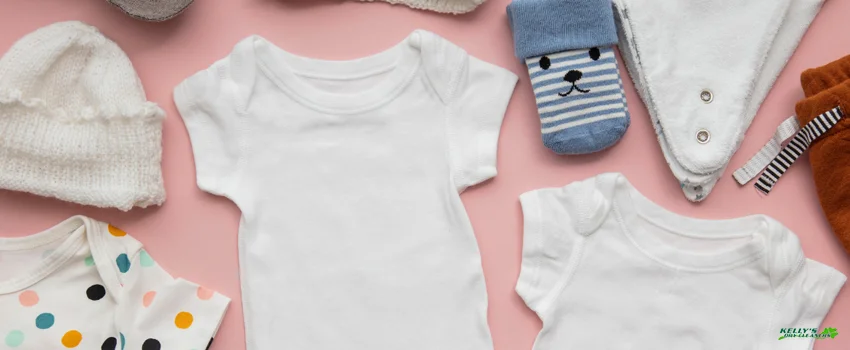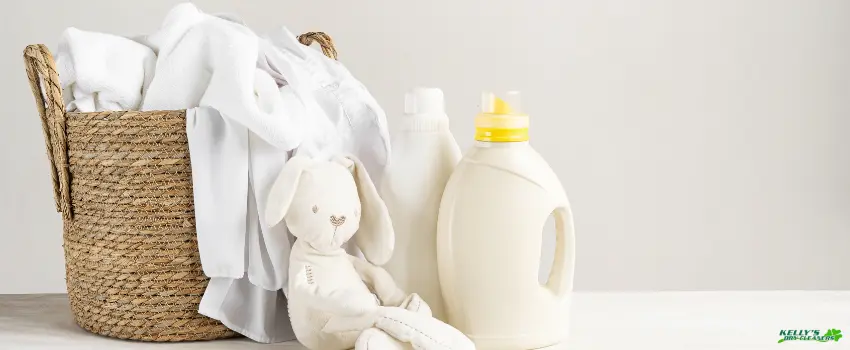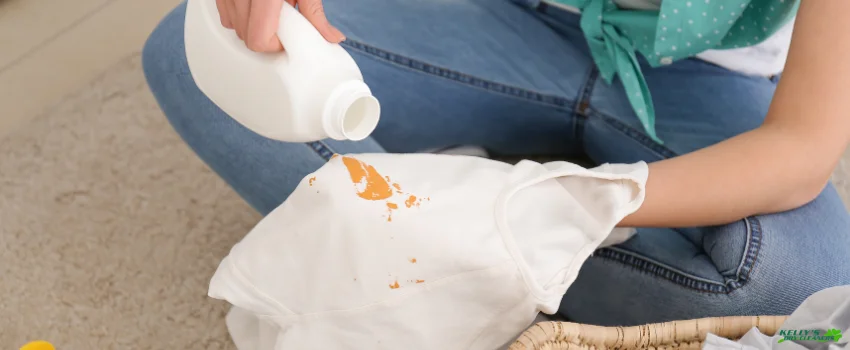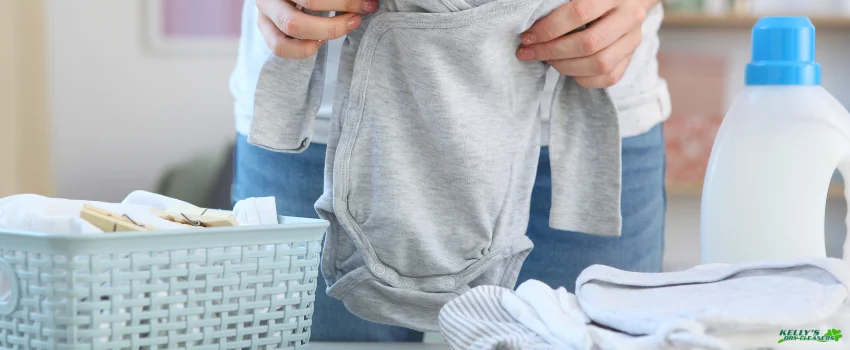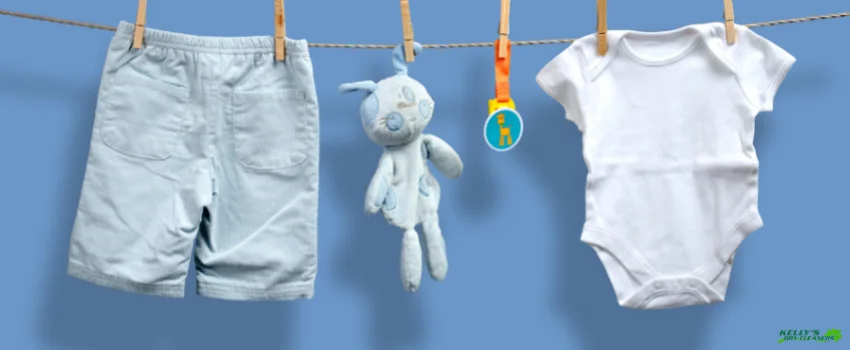When shopping for adorable outfits for your little bundle of joy, it’s easy to get carried away and forget just how much laundry you’ll be doing. As you stare at a pile of dirty onesies and pajamas, the reality sink in and you may start feeling overwhelmed. But, washing baby clothes is nothing to fear, regardless of whether you enjoy doing laundry or not.
Read on this step-by-step guide to baby clothing care and make the laundering process a breeze. By spending less time doing the laundry, you’ll have more time to snuggle and bond with your little one or even catch up on some much-needed sleep.
Selecting the Right Detergent
The first step in washing baby clothes is selecting the right detergent. It’s essential to choose a baby laundry detergent that is free from compounds that could irritate your baby’s skin and make sure to use the amount of detergent recommended for washing clothes. Here are some of the types of detergents to use for your baby’s delicate clothes:
1. Hypoallergenic Detergent
Hypoallergenic detergents are specifically designed for individuals with sensitive skin. They contain no dyes, perfumes, or other irritants that could cause allergic reactions or skin irritation. These detergents are an excellent choice for washing your baby’s clothes as they are gentle on delicate skin.
2. Baby-Specific Detergent
Some brands offer baby-specific detergents that are formulated with babies’ sensitive skin in mind. This baby laundry soap is free from harsh chemicals, fragrances, and dyes and are perfect for parents who want to ensure their baby’s clothes are washed with the gentlest possible care.
3. Plant-Based Detergent
Plant-based detergents are an eco-friendly and safe option for washing baby clothes. They are made from natural ingredients, which makes them an excellent choice for parents concerned about the impact of harsh chemicals on their baby’s health.
4. Mild Detergent
Mild detergents are another suitable option for washing your little one’s clothes. They are free from harsh chemicals and fragrances and are gentle on your baby’s skin. These detergents are easy to identify as they are usually labeled as mild or gentle.
Preparing Baby Clothes for Washing
Preparing clothes for washing is crucial to prevent color bleeding and fabric damage. It also helps remove irritants and chemicals that may be present in the garment. Here are some essential steps to follow before washing your little one’s clothes:
1. Sort by color and material.
When washing baby’s delicate clothes, always separate them by color and material to avoid color bleeding and damage to delicate fabrics. Sort whites, lights, and darks into separate piles. You should also separate clothes made of different materials such as cotton, polyester, and wool.
2. Pre treat stains.
When it comes to treating stains on clothes, it’s important to act fast and remove as much of the staining substance as possible before laundering. Here’s the best way to wash baby clothes while removing common types of baby stains:
- Removing Protein-Based Stains – Tackle stains from baby formula, breast milk, spit-up, most food stains, and feces by soaking the affected garment in cool water with an enzyme-based stain remover. If the stain persists, try using an all-purpose stain remover before washing the garment as usual.
- Removing Urine Stains – To remove urine stains, begin by diluting one tablespoon of ammonia in one cup of water and apply it to the affected area. Be sure to test the mixture in a small, inconspicuous area of the garment first.
- Removing Baby Oil Stains – To remove baby oil stains, use a pre-wash stain remover and launder the item in the hottest water that the fabric can handle. Once the washing cycle is complete, let the garment air dry. Avoid heat drying the treated garment as it can only allow the stain to set.
- Removing Stains from Fruits and Vegetables – If you’re dealing with stains caused by fruits and vegetables, you can start by rinsing the stain in cool water. If the stain is still visible, try soaking the garment in an equal mixture of rubbing alcohol and water before washing it normally. For tougher stains, use a pre-wash stain remover and launder the garment as usual.
3. Wash new clothes before dressing your baby.
New clothes should always be washed before your baby wears them. This is to eliminate any potential chemicals or irritants that could trigger skin irritation or allergic reactions. Even if the clothes appear clean, they may have been exposed to chemicals during the manufacturing process.
4. Use a mesh laundry bag.
To protect delicate fabrics and prevent damage during washing, consider using a mesh laundry bag. These bags can also help prevent small items like socks and mittens from getting lost in the wash.
Washing Baby Clothes
When washing your baby’s delicate clothes, it’s best to use a gentle cycle and cool or warm water. Avoid using hot water as it can damage the delicate fabrics and cause shrinkage. Using a gentle detergent and avoiding fabric softeners and dryer sheets can also help prevent skin irritation.
Hand washing is also an ideal option for particularly delicate items. Be sure to use lukewarm water and a gentle detergent to wash baby clothes safely. Gently agitate the clothes in the water and avoid scrubbing or twisting them, as this can damage the fabric. Rinse the clothes thoroughly in cool water to remove all traces of soap.
Drying and Storing Baby Clothes
Properly drying and storing clothes is just as important as washing them. When drying your little one’s clothes, it’s best to use a low heat or air-dry setting to prevent damage to delicate fabrics. High heat can cause shrinkage or damage to certain materials. Avoid hanging clothes in direct sunlight, as it can cause colors to fade.
Once the baby’s garments are dry, store them in a clean and dry place to prevent any damage from dust or moisture. A good option is to fold them neatly and place them in a drawer or on a shelf. It’s also a good idea to separate clothes by size and season to make it easier to find what you need when dressing your baby. Proper storage not only helps keep them in good condition but also for future use or hand-me-downs.
Additional Tips for Washing Baby Clothes
Washing your baby’s delicate clothes requires extra care to ensure they are clean, fresh, and safe for your little one’s sensitive skin. Here are some essential baby clothing care tips that every parent should know:
1. Wash clothes in warm or cool water.
Hot water can damage delicate fabrics and cause shrinkage. It’s best to use warm or cool water for washing most baby clothes, but always follow the care instructions on the label for the best results.
2. Avoid using fabric softeners.
Fabric softeners and dryer sheets can leave a residue on clothes, which can irritate your baby’s skin. Use natural fabric softener instead by adding a half cup of vinegar to the rinse cycle.
3. Hang the garments or lay them flat to dry.
Air-drying is best for delicate fabrics, like your little one’s clothes. Avoid hanging clothes in direct sunlight as it can cause colors to fade. If you plan on using a dryer, make sure to use a low-heat setting.
4. Iron the clothes carefully.
Some baby clothes require ironing, especially special occasion outfits. Use a low heat setting and iron on the reverse side of the fabric to avoid damaging any prints or designs.
5. Consider a dry cleaning service.
If you’re unsure how to properly wash your little one’s clothes or tackle any stubborn stain without damaging them, you can always opt for professional dry cleaning services. Professional dry cleaners are knowledgeable in handling any type of fabric, including your baby’s delicate clothes.
Key Takeaways
Properly caring for and washing your baby’s garments is essential for maintaining your baby’s health and comfort. By selecting the right detergent, prepping clothes, using the appropriate washing machine settings, and following best practices for drying and storing, you can keep your baby’s clothes looking and feeling their best. Remember to avoid harsh chemicals, use gentle cycles, and follow these tips for the best results.
Trust Kelly’s Dry Cleaners to give your clothes the gentlest laundering care.
If you have delicate or expensive clothes that require special care, Kelly’s Dry Cleaners is the best place to go. As the premier dry cleaners in Farmington, we have the expertise and knowledge to handle any type of fabric, including silk, wool, and cashmere, and we use only the gentlest laundering techniques to ensure that your clothes come out fresh and looking their best.

